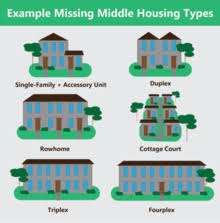
With so many finance-related terms and concepts, the real estate world seems to have its own language. Home owners and even some investors with purchases under their belts can get confused by all the financial jargon. The key to unlocking the mystery is to educate yourself, and that means understanding several terms of real estate. When you understand these basic financial concepts, you’ll feel more confident during the home buying and ownership journey, and stand a better chance to grow your investment. In fact, we think it’s essential to have a general knowledge of the 18 following terms that blend together the worlds of real estate and finance.
Real Estate Finance Terms
Adjustable-Rate Mortgage
An adjustable-rate mortgage (ARM) is a loan with interest that can change over time. Unlike a fixed-rate mortgage, an ARM is not locked into one set rate. ARMs start with a fixed, low-interest rate that generally lasts 5-10 years. Once this initial fixed period ends, the rate can be adjusted periodically, usually based on market conditions. There is a set rate cap that it can’t go over.
Amortization
Amortization is an accounting technique used to routinely lower the book value of your loan over a designated period of time. In regards to a real estate loan, it spreads the payments out over time. You’ll pay off the debt through regular principal and interest payment installments. Your lender uses this to create your loan repayment schedule based on the maturity date. Negative amortization happens when the loan payments are lower than the accumulated interest. This causes you to owe more money.
Annual Percentage Rate
The annual percentage rate (APR) is the interest charged for borrowing money. It represents the yearly cost of the loan, expressed as a percentage. Unlike an interest rate, an APR can include fees such as mortgage insurance, closing costs, discount points, and loan origination fees
Capital Gains
Capital gains are the profit you make when you sell your property. It essentially reflects a rise in property value and is realized when you complete a sale and collect a profit, which is taxable income. The IRS classifies capital gains according to the length of time you owned the real estate. Short-term capital gains are the profits you make when selling a property you owned for one year or less. Long-term capital gains refer to the profits earned on property owned for longer than one year.
Cash Flow
Cash flow is the net balance of cash that goes in or out of a business. In real estate, it’s the money your property generates, such as rent, and the money you spend on the property.
Cash Reserves
Cash reserves are the liquid assets you have after you pay your down payment and closing costs. Liquid assets are any funds that you can quickly turn into cash.
Comparative Market Analysis
A Comparative Market Analysis is used to help determine the value of your property before listing it. To conduct a CMA, an agent will look at similar properties in the area and compare how much each sold for. Ideally, the analysis will consider homes that sold within the last three months. This approach to pricing is based on the idea that you can determine a home’s value by referencing the recent sale price of a similar home of equal desirability.
Debt-to-Income Ratio
Mortgage lenders consider your debt-to-income ratio to determine how much you can afford to pay monthly on a mortgage. It is determined by dividing your debts plus monthly housing payment by your monthly gross income. This is then multiplied by 100. Lenders are looking for you to be spending 28% or less each month on housing. They also look for you to be spending less than 36% of your income on debt. If these percentages are higher, you’ll need to adjust your budget before getting loan approval.
Diversified/Diversification
Diversification refers to investing in multiple assets. A diversified investment strategy may include real estate, stocks, and bonds. Investing in various asset classes can reduce your risk of loss while maximizing your earning potential. A real estate investment advisor can help you determine the risks and opportunities surrounding different properties, from single property owner to those looking to build a portfolio.
Fixed Asset
A fixed asset is the property you own that has a useful life of more than one year. These items cannot be quickly exchanged for cash. Buildings and land, as well as machinery and equipment, are all good examples of fixed assets.
Fully Amortized
Fully amortized describes a type of periodic repayment on a mortgage. If you make all of your monthly payments according to your term loan’s original schedule, the loan will be paid off in full by the end of the term, and thus be fully amortized. Amortization is used in reference to the interest and the amount of the principal that you pay each month. A large portion of your monthly payment goes towards the interest in the beginning.
HELOC
A home equity line of credit (HELOC) is what people are talking about when they say they have a second mortgage. It is a line of credit that is secured by your home. This gives you access to a revolving line of credit that you can use to consolidate other high-interest loans. Or, you can use it to cover large expenses.
Individual Development Accounts
Individual development accounts are special savings accounts that help you get in the habit of saving regularly. The goal so to have enough to purchase a productive asset such as a house. Deposits are matched by a non-profit. Think of it as more of an investment opportunity rather than a handout.
Liquid/Liquidity
Liquidity in real estate refers to how easily you can convert property you own into cash. All real estate works on a liquidity risk spectrum. There are times when you can quickly sell a home for its market value. Other times, depending on the market, you won’t be able to get what the property is worth.
Mortgage Interest Deductions
Mortgage interest deductions are special tax incentives for homeowners. With this home buying incentive, you can deduct the interest you pay on your mortgage in order to lower your taxes.
Return on Investment
Your return on investment (ROI) is the profit you make on a property once you sell it. Think of it as the “reward” you get for all the money and effort you put into developing an investment. The ROI is calculated by comparing how much the real estate cost, along with any money used for improvements, to how much it sells for.
Trusts
A trust sale is when a property is sold by a living trust instead of a private party. This happens when the original homeowner passes away. You can often get a good deal when working with trusts because the trustee isn’t as emotionally attached to the house. In some cases, the trustee may take a lower offer just to get rid of the property quickly and close the estate.
Seed Capital
Seed capital refers to money raised to develop a business. It is often used to aid in funding a real estate firm’s growth. Investors pool their money. They often invest the pooled money to allow it to grow. This can be in stocks, bonds, or purchasing a property.
By understanding these 20 terms of real estate, you’ll be better equipped to negotiate a home purchase, loan, and sale while avoiding financial mistakes. Contact Evergreen Investments to learn more and take advantage of our real estate management services to help grow your investment.




0 Comments